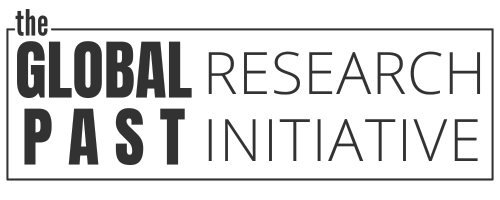
Promoting equity in the present by
exploring the diversity of the past.
Our Project
Based at the University of Toronto Mississauga, this multidisciplinary, multiyear project — led by principal investigators, Ajay Rao and Jill Caskey — is a call-to-action for scholars of the premodern world (before ca. 1500) to begin building a productive framework for research, teaching, and graduate training focused on the connectedness of cultures and of archives. Our objective is to revitalize the global humanities and provide a more expansive understanding of the humanities’ core question — what does it mean to be human?
We seek to build networks of collaboration and exchange among scholars and students at the University of Toronto, American University in Cairo, Indian Institute of Technology Bombay, Institut Français de Pondychéry, and National University of Singapore. We believe that a truly global university will be home to humanities programs that break free of hegemonic disciplinary boundaries and embrace non-Western and Indigenous ways of knowing and seeing the world by moving beyond disciplinarization to produce knowledge that is transformative, emancipatory, and plural.
The Global Past Research Initiative is generously supported by the University of Toronto’s Connaught Fund.

Hear it from Jill and Ajay
Principal Investigators, Ajay Rao and Jill
Caskey, reflect on the project’s personal
and conceptual beginnings.
What We Do
Composed of three interlocking research clusters the initiative will involve three, week-long, international workshops aimed at sparking dialogue and building research capacity for graduate students and scholars of the premodern world.
These workshops will focus on major methodological and theoretical problems and their implications for our individual research areas, as collaborators bring newfound insights and conceptual frameworks to bear on specific settings, sources, and collections.
Our Research Clusters
Mobility
Focusing on the movement of peoples, goods and ideas in the premodern world as they are reflected in a wide range of sources such as travel narratives, diplomatic accounts, memoirs of pilgrimage, commercial documents or graffiti left by roamers of trade routes and seasonal pastures.
Art & the Built Environment
Focusing on art and architecture in premodern Eurasia to consider how various groups responded to the diversity of their world and the concomitant circulation of works of art, artists, techniques, media, and ideas.
Storytelling, Narrative & Textuality
Focusing on the science of texts as a theoretical problem in the global humanities. We will examine diverse practices of lexicography, grammar, rhetoric, metrics, hermeneutics, and commentary, as well as the modes of cultural encounter involved in translation and oral and written story traditions.
The Global Challenge
Our modern social science and humanities disciplines are by-products of empire. When our disciplines were taking shape and professionalized from ca. 1850 to 1914, the non-West figured as essentially non-historical: institutionalized disciplines positioned societies and cultures outside of Europe and its settler colonies as either “precontact” cultures examined through ethnography, or textual artefacts of “high” civilizations studied in isolation from diachronic processes and the present.
After 1945, the Cold War brought a proliferation of area studies programs; these endeavours, while interdisciplinary, were also framed by colonial/imperial organizations of power and knowledge that prioritized empirical study of bounded regions rather than questions of global relevance.
Our collaborative project sees this disciplinary legacy as a global challenge.
Challenge 1
How can research on the premodern world (before 1500) proceed without recourse to approaches and perspectives associated with colonization and imperialism?
Challenge 2
How can we develop new methods for understanding the complexity of the global past, methods that do not reify western power through our inherited models of hegemonic knowledge?
We will address this global challenge by creating an international network of scholars and institutions.
We will unite the University of Toronto’s strengths in the study of the premodern world with those of our four, international partners: American University in Cairo, Indian Institute of Technology Bombay, Institut français de Pondychéry, and National University of Singapore.